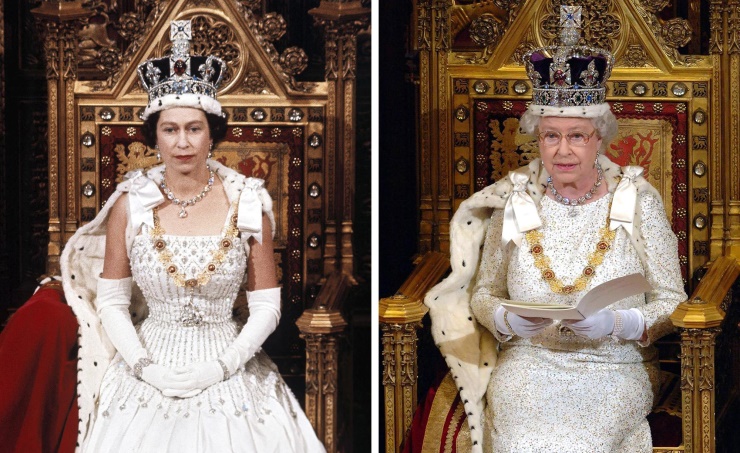LONDON : Queen Elizabeth marks 70 years on the British throne on Sunday, a milestone never reached by any of her predecessors over the last 1,000 years, and one which only a few monarchs across the globe have ever achieved.
The woman who became Queen Elizabeth II will mark 70 years on the throne Sunday, an unprecedented reign that has made her a symbol of stability as the United Kingdom navigated an age of uncertainty.
From her early days as a glamorous young royal in glittering tiaras to her more recent incarnation as the nation’s grandmother, the queen has witnessed the end of the British Empire, the advent of multiculturalism, the rise of international terrorism, and the challenges posed by Brexit and the COVID-19 pandemic.
In a world of relentless change, she has been a constant — representing the U.K.’s interests abroad, applauding the nation’s successes and commiserating in its failures, and always remaining above the fray of politics.
That constancy should earn Elizabeth a royal epithet like those of her predecessors such as William the Conqueror, Edward the Confessor and Alfred the Great, said royal historian Hugo Vickers.
“I’ve always thought she should be called Elizabeth the Steadfast,” Vickers told The Associated Press. “I think it’s a perfect way of describing her. She wasn’t necessarily expecting to be queen, and she embraced that duty.”
As the elder daughter of King George V’s second son, Elizabeth, now 95, was expected to live the life of a minor royal when she was born on April 21, 1926. Dogs and horses, a country house, a suitable match — a comfortable but uneventful life — seemed her future.
But everything changed a decade later when her uncle, King Edward VIII, abdicated so he could marry the American divorcee Wallis Simpson. Elizabeth’s father became King George VI, making the young princess heir apparent.
George VI, whose struggles to overcome a stutter were portrayed in the 2010 film “The King’s Speech,” endeared himself to the nation when he refused to leave London as bombs fell during the early months of World War II.
Elizabeth followed her father in leading by example, joining the Auxiliary Territorial Service in early 1945, becoming the first female member of the Royal Family to join the armed services as a full-time active member. On her 21st birthday, she dedicated her life to the nation and the Commonwealth, the voluntary association of states that grew out of the British Empire.
“I declare before you all that my whole life, whether it be long or short, shall be devoted to your service and the service of our great imperial family to which we all belong,” she said in a radio address broadcast around the world.
In 1952, the young princess embarked on a tour of the Commonwealth in place of her ailing father. She was at a remote Kenyan lodge, where she and her husband Prince Philip watched baboons from the treetops, when she heard her father had died.


